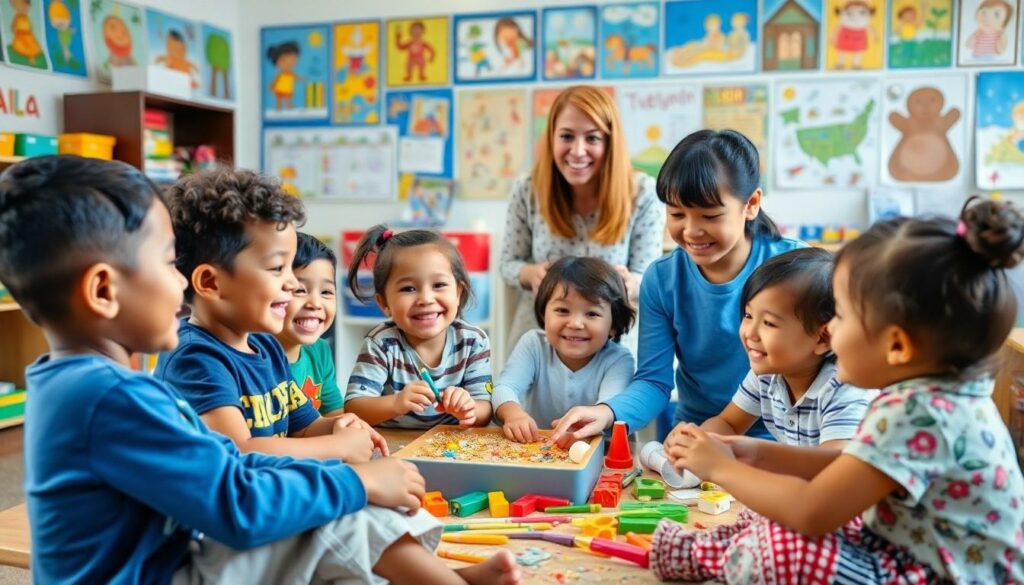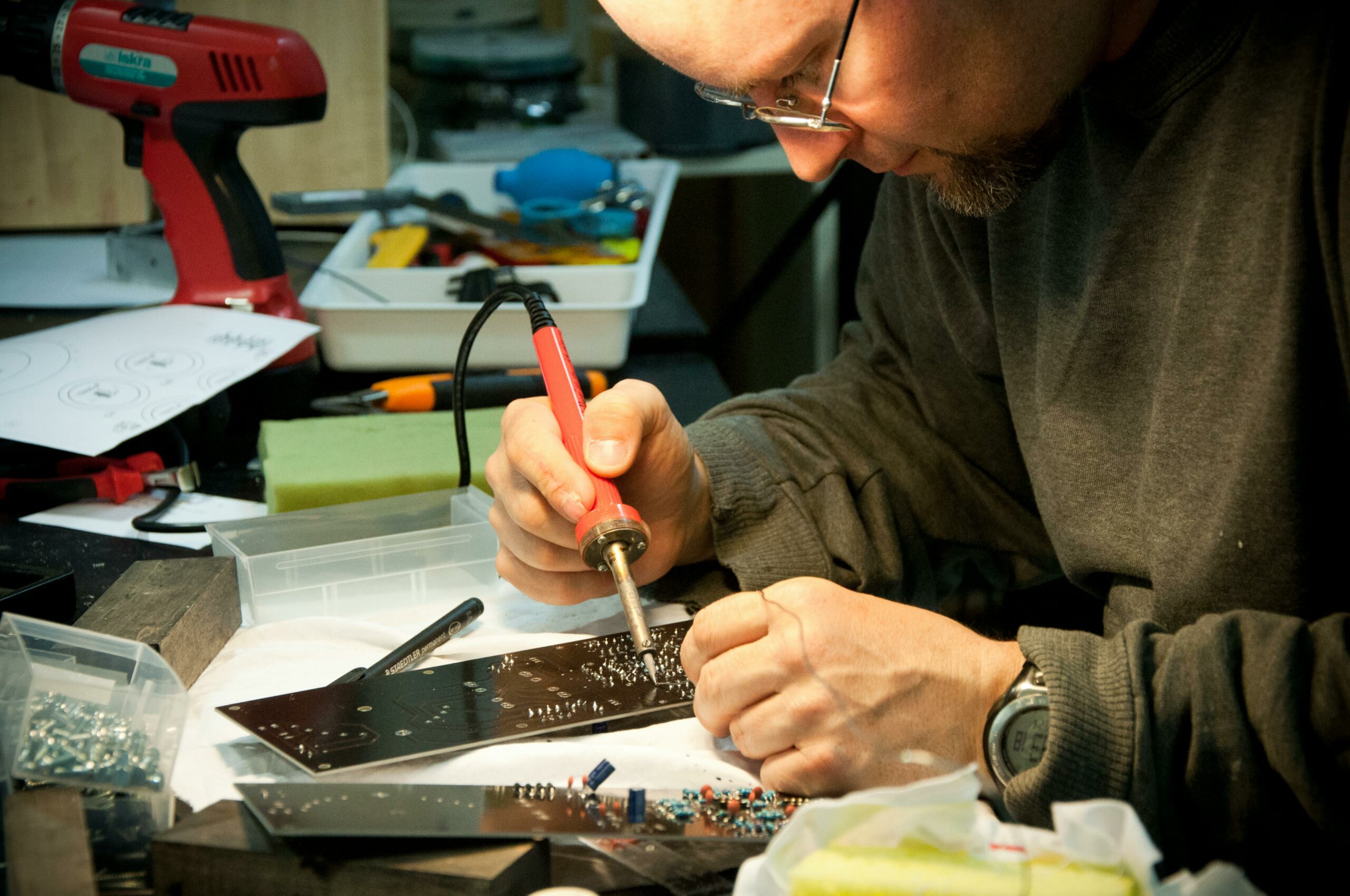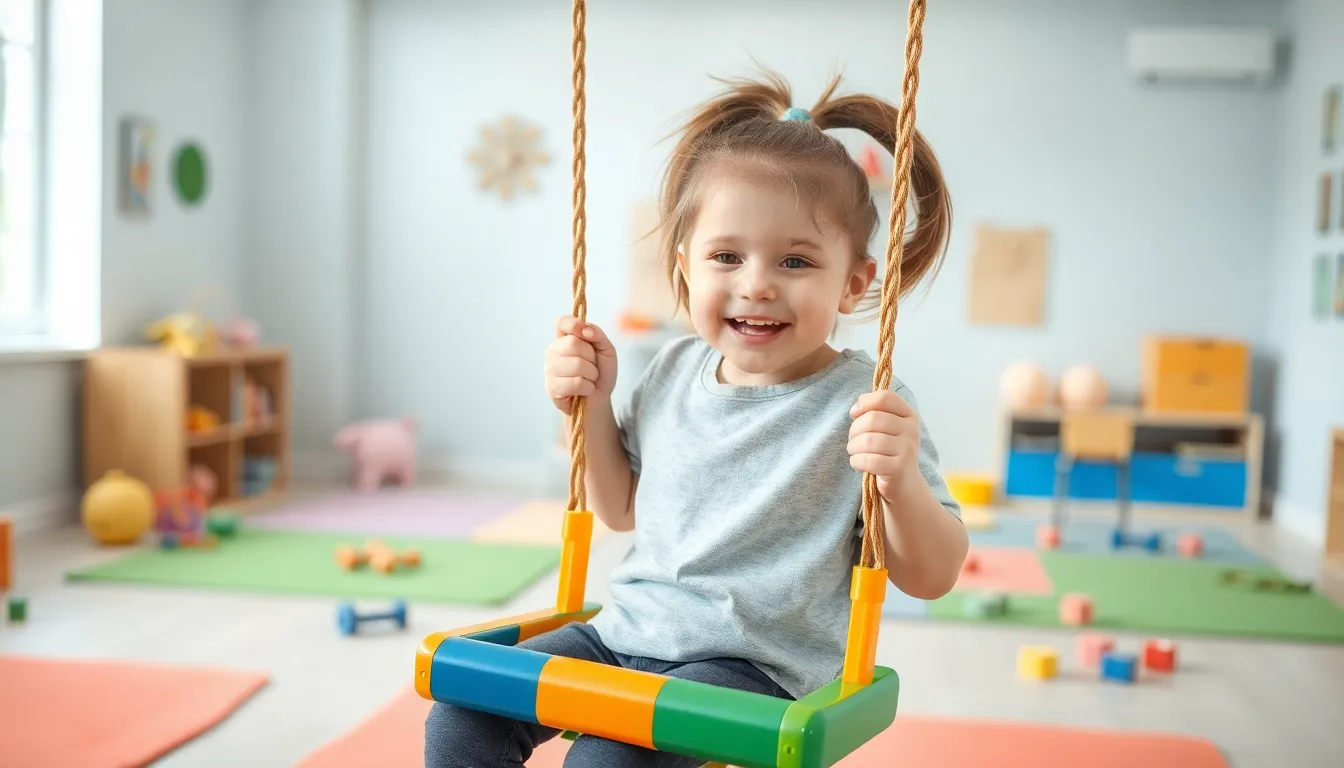In a world where traditional education meets cultural richness, heritage preschools are popping up like daisies in spring. These vibrant learning environments blend foundational skills with the beauty of cultural traditions, giving kids a head start that’s as unique as their tiny fingerprints. Imagine a place where children can learn the ABCs while also discovering the ABCs of their heritage—now that’s a recipe for success!
Heritage preschools don’t just focus on numbers and letters; they celebrate diversity and instill a sense of identity from an early age. With engaging activities that draw on cultural stories, music, and art, kids are not only prepared for school but also for life. So why settle for a cookie-cutter preschool when you can give your child a colorful canvas of experiences? Let’s dive into the world of heritage preschools and explore why they’re the perfect choice for nurturing little minds and big hearts.
Table of Contents
ToggleOverview of Heritage Preschool
Heritage preschools blend traditional educational practices with cultural elements. These institutions focus on foundational skills essential for young children’s development while celebrating cultural diversity. Engaging activities are integral to the curriculum, and they often include cultural stories, music, and art.
Incorporating diverse learning resources enhances children’s understanding of their own identities and those of their peers. Educators at heritage preschools emphasize the importance of cultural history and community, helping children connect with their heritage. Lessons are designed to encourage collaboration and respect for different cultures.
Parents appreciate heritage preschools for fostering an inclusive environment that values individuality. By highlighting various cultural perspectives, these preschools create an atmosphere where children can express themselves freely. Children learn vital social skills necessary for future interactions.
Reports indicate that heritage preschools often outperform conventional preschools in areas such as social-emotional development and cultural awareness. Parents consider this unique educational approach invaluable for developing well-rounded individuals. Enriched by cultural narratives, the learning experience at these preschools tends to be more engaging, making education not only about academics but also about personal growth.
Overall, heritage preschools provide an enriching environment, establishing a strong foundation for lifelong learning. As educational alternatives gain popularity, these preschools offer distinct advantages that prepare children for school and life.
Key Features of Heritage Preschool
Heritage preschools offer unique advantages through their focus on culture and education. The blend of these elements supports a well-rounded development for children.
Cultural Integration
Cultural integration plays a crucial role in heritage preschools. Engaging children in activities that showcase cultural traditions fosters appreciation for diversity. These preschools incorporate stories, music, and art from various cultures, allowing children to explore and celebrate their backgrounds. Programs emphasize collaborative projects, teaching respect and cooperation among peers. Children learn to recognize cultural similarities and differences, enriching their social interactions. By connecting with their heritage, they develop a strong sense of identity. Studies indicate that such cultural experiences enhance empathy and social understanding in young learners.
Educational Approach
The educational approach at heritage preschools emphasizes experiential learning. Children participate in hands-on activities that make learning relevant and enjoyable. Educators focus on foundational skills, integrating cultural elements into daily lessons. This method promotes language development and problem-solving skills through meaningful interactions. Learning takes place in a supportive environment that encourages self-expression. Teachers nurture curiosity and creativity, helping children explore their interests. Reports show that this emphasis on a holistic educational experience leads to improved social-emotional growth. Parents value the dedication to developing well-rounded individuals ready for future challenges.
Benefits of Heritage Preschool
Heritage preschools provide numerous advantages that support children’s growth and development. These benefits include the development of identity and community engagement.
Development of Identity
Children gain insight into their cultural backgrounds through heritage preschools. They participate in activities highlighting traditional stories, music, and art, which fosters a sense of belonging. This connection to their roots strengthens identity formation at an early age. Understanding their heritage encourages pride and boosts self-esteem. Educators guide discussions that emphasize unique backgrounds. They create an inclusive atmosphere where children celebrate diversity together. Children learn to appreciate their identity while respecting others.
Community Engagement
Heritage preschools actively involve families and local communities in children’s learning experiences. Collaborations with cultural organizations enhance educational offerings. Community events provide opportunities for families to share their traditions. These interactions build strong relationships between children and their communities. Furthermore, children practice social skills while engaging with diverse groups. Heritage preschools foster an appreciation for collaboration and understanding. This community focus contributes to the overall developmental success of young learners, ensuring they become empathetic, socially aware citizens.
Challenges Faced by Heritage Preschools
Heritage preschools encounter specific challenges that can impact their operations and effectiveness.
Funding and Resources
Funding remains a significant challenge for heritage preschools. Many operate on limited budgets, affecting the range of programs they can offer. Resource allocation often focuses on maintaining cultural materials and hiring qualified educators who understand diverse backgrounds. Grants and financial support can be inconsistent, making long-term planning difficult. Budget constraints may limit access to current educational tools necessary for innovative lesson plans. Collaborations with local businesses or non-profits can provide essential financial relief, but these partnerships require time and effort to establish.
Parental Involvement
Parental involvement plays a crucial role in the success of heritage preschools. Engaging families in educational activities fosters a stronger connection between home and school. Some parents may have limited availability due to work commitments, which restricts their participation. Educators strive to create flexible opportunities for parents to contribute, such as virtual meetings or weekend events. When parents engage, their support enhances children’s learning experiences and cultural appreciation. Building an effective communication channel can help maintain ongoing dialogue with families, ensuring their needs and expectations are consistently met.
Heritage preschools represent a transformative approach to early childhood education that prioritizes cultural integration and community engagement. By fostering an environment rich in diversity and self-expression, these preschools equip children with essential social-emotional skills and a strong sense of identity. As they navigate their cultural backgrounds through engaging activities, children develop empathy and respect for others. While challenges such as funding and parental involvement exist, the benefits of heritage preschools in nurturing well-rounded individuals are undeniable. This innovative educational model not only prepares children for academic success but also for a life enriched by cultural understanding and appreciation.






